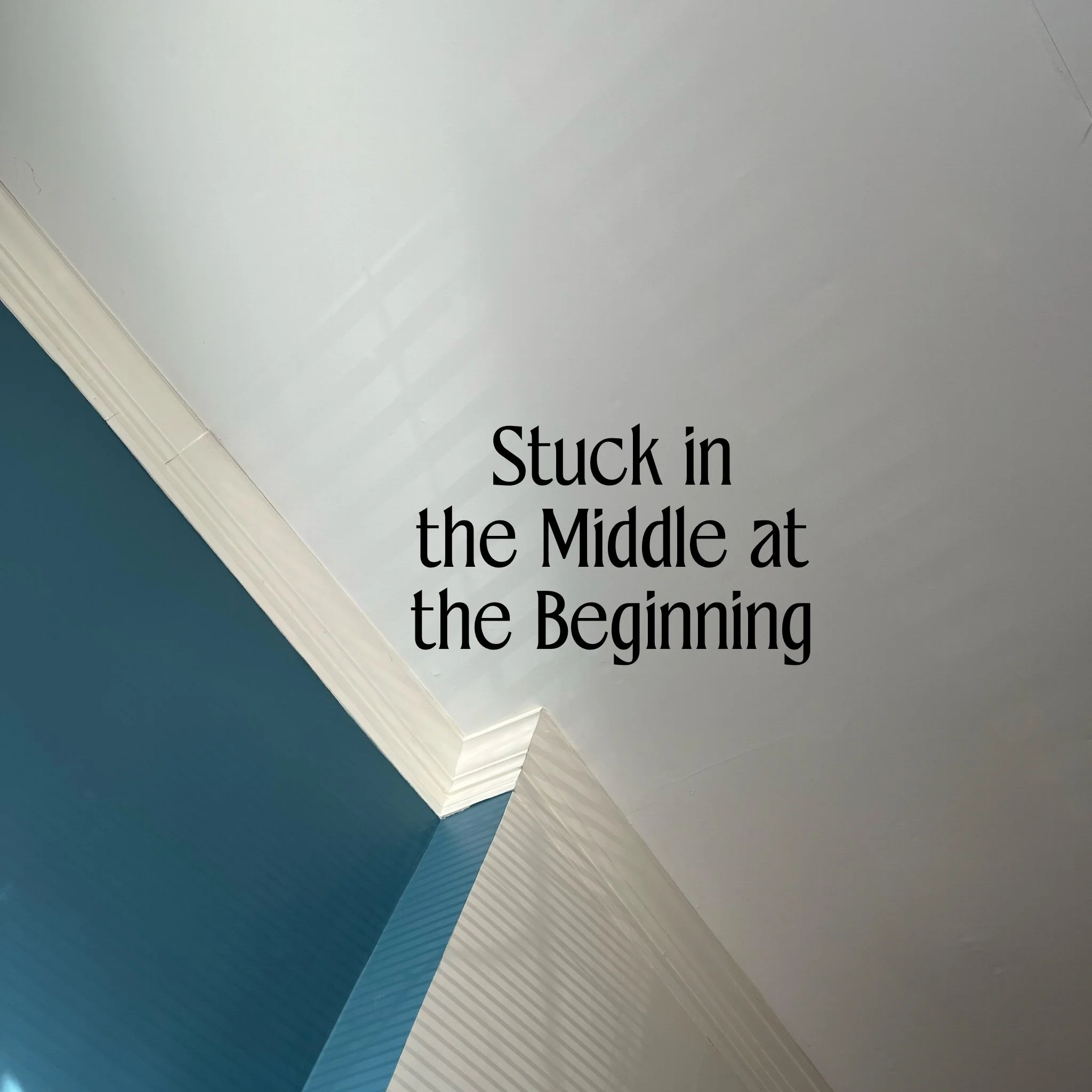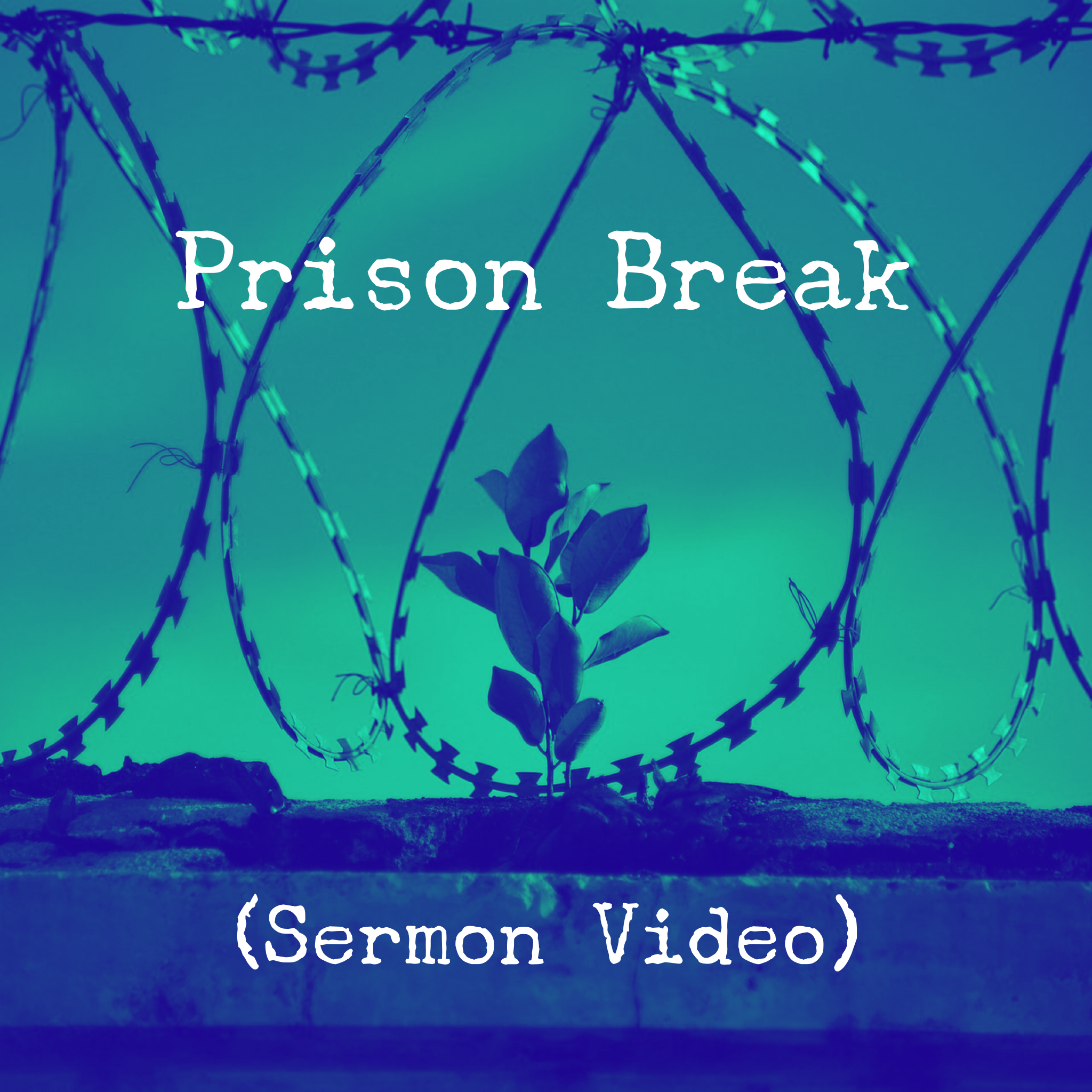Rebirth (Roman 6:1-14, 23)
The following is my manuscript for the sermon that I preached on Sunday, July 24 at The Bridge service. As always, this is not exactly what I said. There was a whole Toy Story 4 story at the beginning and the ending got changed on the fly. But this is what was in front of me.
I am going to go against everything that Julie Andrews believed in and start at the end rather than the beginning. Romans 6:23—“For the wages of sin is death, but the free gift of God is eternal life in Jesus Christ our Lord”—is one of the earliest verses that I memorized. It is part of a series of verses known as the Roman Road. Has anyone here heard of the Roman Road? Not the Appian Way that led to Rome but the parts of Paul’s letter that is supposed to lay out the road to salvation?
In my church we were taught the Roman Road early on. You start on the road with Romans 3:23, which is our problem as humans: “For all have sinned and fall short of the glory of God.” Then you come to the consequence of our problem in the first part of Romans 6:23, that our sin warrants death. But then the turn comes when you double back to Romans 5:8 which tells us that “God demonstrates His own love for us in this: while we were yet sinners Christ died for us.” Then the road ends at our response in Romans 10:9: “For if you confess with your mouth that ‘Jesus is Lord’ and believe in your heart God raised him from the dead, you will be saved.” That was the Roman Road: a quick and easy way to lay out the plan of salvation for little Baptist kids.
It may sound like I’m trying to knock that approach but that’s not my aim. As a teaching tool, the Roman Road was very effective. After all, it is still with me after all these years. And there are important lessons to remember along that path. We do all mess up and fall short of what God asks of us. God does love us so much that Christ came to earth to live with us, show us what love is, and die even though we mess up all the time. But it was presented as a quick and easy transaction; a way to go to heaven when you die. And I just think that the Christian faith is far more than a spiritual transaction that determines our afterlife. I need it to be more than that. As a result, I have been in an epic wrestling match with Romans 6:23 all week long and even late into last night.
Prior to Romans 6, Paul has been talking about how God’s grace and forgiveness can cover our misdeeds. In Romans 5:20, he states “where sin increased, grace abounded all the more.” Which raises an interesting question: With the overwhelming nature of God’s grace, could we not just do whatever we want since grace will carry the day? Paul anticipates this question. “What then are we to say? Should we continue in sin in order that grace may abound? By no means!” Or “Never!” Or “Certainly not!” Or “No Way!” Now I know that Paul was most likely throwing out a straw man argument to make a point. But deep down in my heart, I want to believe that there was an actual guy in the Roman church who was trying to pull off this “sin a lot, get forgiven a lot” scheme.
“Hey Claudius.”
“Paul! What’s up? Praise be to the Lord, my man!”
“Uh, yeah, praise be to the Lord. Hey, um, some of the church leaders wanted me to talk to you…”
“To me? I bet they’re impressed with all the work I’m doing for God!”
“Uh, well, it has made an impression on them. They say that you have been incredibly rude to people, you stole your brother’s girlfriend, you’ve been…taking ice cream from children in the park?”
“I know! Up top!”
“No. Why are you doing this?”
“Like you said, man: ‘Where sin increased, grace increased all the more.’ I figured I would do God a solid and keep that grace flowing full tilt.”
“That is not…that’s not how this works…Claudius, they say you’ve been selling baby elephants on the black market?”
“Grace increased a lot with that one, my man.”
There probably wasn’t a Claudius, but Paul poses the question in such a ridiculous way as to crack the door open to an important conversation that gets to the heart of seeing religion as merely a transaction. After all, “Claudius” is saying that as long as God’s grace covers me then I am free to do what I want. But God is offering grace for more than just saving us. There is a bigger plan afoot. So if someone is saved by grace, if someone says that they are following Jesus then Paul is stating that it should look like it.
The apostle then takes an unexpected path when talking about how sin should not be a regular part of the Christian life. You would expect him to talk about how it was bad for us, that it hurts our chances for happiness, that it is not the habit of a successful person. But instead he takes a different and kind of bold route. He says that when Christians are baptized, they are baptized into the death of Jesus. Often when Christians are baptized, the minister baptizing will declare “Buried with Jesus in death and raised to walk in newness of life,” which is a phrase Paul uses in this passage.
We might bristle at the idea of dying. We are notorious for not handling the idea of death that well. But death is part of the natural flow of creation. After all, a seed must die in order to produce a beautiful massive oak tree. An old way of life needs to die to make way for something new. Basically, Paul receives this topic of sin in the Christian life and instead of a diatribe about evil and doing what is wrong, he leans in and basically says, “Sin is not a thing for you anymore.”
And I can’t decide if that strategy is woefully naive or if it’s brilliant. It helps that Paul admits that following the way of Jesus is still a struggle. Later on in Romans 7, he famously states “For I do not do the good I want, but the evil I do not want is what I do.” He’s not trying to Jedi Mind Trick the Romans into thinking “There is no sin.” He admits that it is still a struggle that will hound us. But what he is telling us is that our direction, our north star is now pointed to Jesus. This newness of life pulls us toward all that is good and beautiful and noble and just. In Romans 12, he encourages the church to be transformed by the renewing of their minds to know the good and pleasing and perfect will of God. He is saying that though we may stumble and fall, we have been reborn and our orientation is toward love of God and love of neighbor, it is toward God’s dream for this world.
That is what Paul is getting at in verse 8. He turns the corner from this question of sin and reframes it as a question of life. “But if we have died with Christ, we believe that we will also live with him.” This idea of “we will live with him” is not solely restricted to the afterlife. I believe that heaven is a part of it. I hope it is. There are many loved ones that I want to see again.
But Paul is talking about a bigger picture of living with Christ. I like how the Biblical scholar Robert Jewett stated it: “To restrict [this] to an eschatological future is unduly to limit the effect of dying with Christ, which in Paul’s theology determines the nature of life from the moment of conversion until the end of time.” This is about our lives now until the end of time. This isn’t merely a transaction. It is life and time and space and the hope of all creation. And we get to be a part of that.
Which brings us back to Romans 6:23. The wages of sin is death, but the free gift of God is eternal life in Christ Jesus our Lord. When Paul says wages, he uses a Greek slang term that originally applied to rations given out to soldiers by the military. By Paul’s time it had entered into wider usage to refer to payment for everything from teachers to musicians to farmers. A wage is something that you continually earn and then also spend. It is your capital in the world.
Thus when Paul says that the wages of sin is death, he is not simply talking about ultimate death. He is speaking about a way of life in which the things we do hurt us and then we spend that capital and hurt the rest of creation. Death is spread around; sometimes literally, sometimes it is the death of a relationship or of someone’s self-worth or of hope or goodness or truth. Regardless, the image of spreading death in the world is a sobering one.
In staff meeting this week, we were talking about what a Christian ought to look like. What is it that speaks to people about the Christian message? Why do people say that Christians are judgment and hypocritical? And I was reminded of a quote (I heard it before the dc Talk song “What If I Stumble”) from the author Brennan Manning who once said that “The greatest single cause of atheism in the world today is Christians who acknowledge Jesus with their lips and walk out the door and deny him by their lifestyle. That is what an unbelieving world simply finds unbelievable.” This is what Paul is arguing against. It is contradictory to embrace and follow this old, dead way of life instead of the life-giving way of being human that we see in Jesus. And it torpedoes any credibility that we have about our faith. The world finds it absolutely unbelievable.
This is not simply about actively avoiding “bad” things. To be sure moral uprightness is part of what we’re supposed to do. Yet when I look around today, I think what the world finds unbelievable is when are not proactively acting like Jesus: when we do not engage the world with humility, when Christians don’t show compassion towards the vulnerable or those on the margins, when the church only look out for their own. This humanitarian crisis going on at our southern border, people are watching that. This is not to trumpet one political side or another, but if we don’t care about these people, if we don’t have compassion for these children and women and men in terrible conditions, then what are we doing? I’m not saying that you have to believe in one solution or another, but to not care is falling vastly short of what God desires as much as a lie or any other kind of sin you can concoct in your mind. That silence or not caring is spending our wages of death.
But that is not a thing for us anymore. Why would we want it to be? The free gift of God is eternal life in Christ Jesus our Lord; an eternal life that is happening right now. It is a gift offered to us irregardless of our worthiness. Paul didn’t want anyone thumping their chests and bragging about their great deeds. That they were God’s favorites. We all struggle. We’ve all earned those wages of sin. But God invites us into a realm ruled by grace. As Jewett stated, this is a realm “where the ordinary rules of honor and accomplishments, of wages and recompense, are no longer in effect. The church resides in this realm in the present, which accounts for its revolutionary social structure, where the first are last, and the last are first.”
Through the way of Jesus, God offers us the chance to be a part of this beautiful world of grace. It’s not perfect, because we’re not. But it’s one in which we are committed to love each other and everyone we encounter as God loves every last inch of creation. To speak life into a world of death. We get to be the light of the world and salt of the earth. Our goal as Christians is to work alongside God and each other to make this place look a little bit more like heaven.
One of the coolest things that I got to do while on a mission trip with some of our youth in St. Louis is to sit down and talk with them at the end of the day about what they had experienced. It was amazing to see these interactions with people from all different walks of life through their eyes and then hear what they thought about how we were doing serving alongside people at home and at this church. I was privy to hear their ideas and their plans and their hopes for ways in which we could even more fully enter into that eternal life given to us. How we could share that with others who may feel like they are swamped by death. How we could feed the hungry, care for this home we’ve been given, pursue justice, welcome those who don’t feel welcomed, to do the things that Jesus showed us. It was like watching something come to life. It was a little bit of heaven coming down to earth. I wish the people who taught me the Roman Road had told me all of that when I was a kid, because then I would not have seen at as simply a road to a place, but the whole wide beautiful world.










